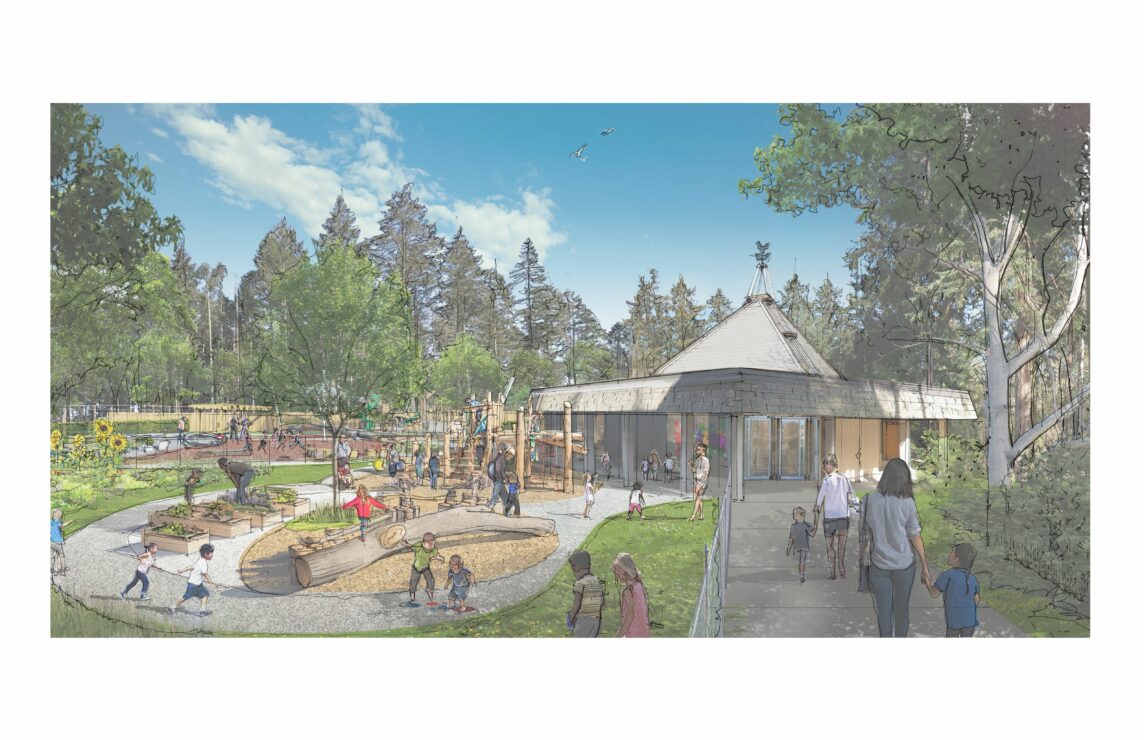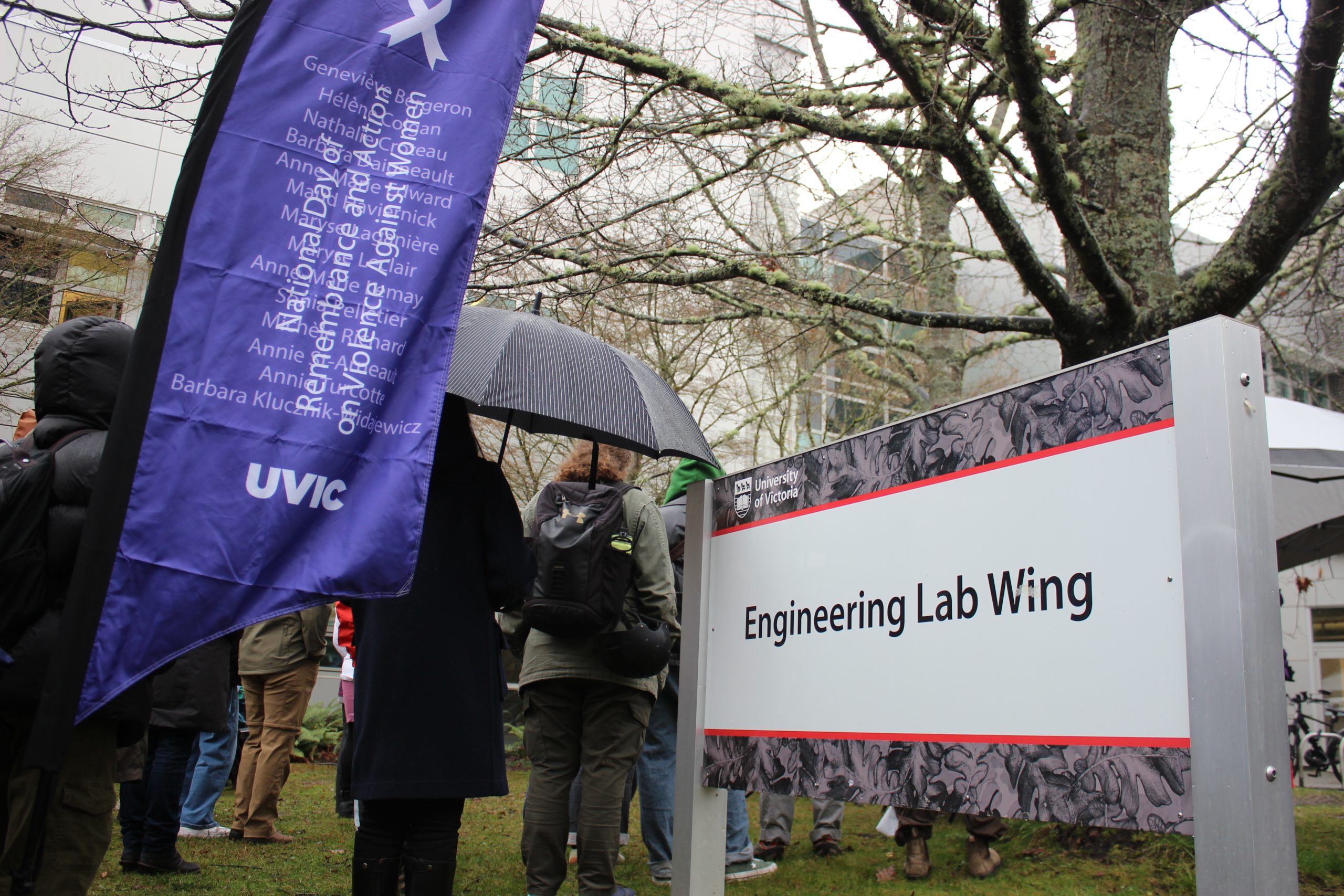Province and federal government partnering with UVic

The federal government recently announced a significant investment in child care in B.C., with the aim of making daycare $10 per day by 2027. This announcement promises a financial boost to the province’s plans to build 30 000 new spaces over the next five years — at least 37 of which will be at UVic.
The Queenswood campus will be renovated to create the new spots. These spaces will add to the existing 116 spots at UVic, and help to lessen long wait times for child care near campus. The renovations should be complete in early 2022 and received $1 479 999 in provincial funding. The total cost of the project is estimated at $1 782 128.
The government is pushing to implement universal child care. However, the progress on new child care spaces, including the ones at UVic, has been too slow for some advocates.
The building blocks of UVic child care
UVic has offered family housing and child care to full-time students with families for 40 years. For full-time students and staff seeking child care, UVic currently offers programs for children up to five years of age. The new child care units at UVic will only be available to full-time students and staff.
“As we resume activities back on campus, with more students returning, faculty and staff as well returning to the campus, it’s more important than ever that working families and studying families have access to child care,” Kim Ainsworth, director of University of Victoria Child Care Services, told the Martlet.
But Ainsworth says that waiting lists for the program are long and that it can take a family between 1 – 3 years to get their child into the program, depending on the age of the child, when spaces open up, and whether the child has a sibling in the program.
Weekly child care costs range from $840 for children of students between 3-5 years of age to $1496 for children of staff under 18 months. The cost of child care depends on the age of the child, whether the parent is student or staff, and how many days a week child care is needed. Child care is offered for up to 5 days a week.
Already existing child care spaces are divided between Complex A, Complex B, and the Harry Lou Poy Building at the university’s Child Care Complex. Complex A has 62 full time spaces — 12 for toddlers under 3 years of age and 50 for children between 3-5. Complex B has 32 spaces for toddlers while the Harry Lou Poy building has 10 spots for infants and 12 for toddlers.
The Queenswood campus is located on Arbutus Road across from the Arbutus Grove Children’s Centre. The new Queenswood spaces will take over the space of the former chapel of the Sisters of St. Ann. The campus is also home to the Ocean-Climate Building and Ocean Networks Canada.
The university hopes to reduce the waitlist with the 37 new spaces and continue to work to eliminate wait times over the coming years.
Not enough child care to meet demand
On southern Vancouver Island, the province promised in April to create 320 new child care spaces — including the 37 at UVic. Since 2018, the province has funded 2 105 spaces on southern Vancouver Island.
“It’s critically important that we serve the diverse needs of B.C. families, including students and faculties and employees at post-secondary institutions like the University of Victoria,” Katrina Chen, minister of state for child care, told the Martlet.
The province estimates 53 000 new child care spaces are needed across the province to end the shortages currently facing parents.
Chen says 26 000 new spaces have been funded, 12 500 of which are expected to be completed over the next year.
“We have already funded and supported the creation of close to 26 000 new spaces,” said Chen. “About 70 per cent of them are expected to be in operation in the coming year.”
The partnership with the federal government will fund 30 000 spaces over the next five years and 40 000 spaces over the next seven years. This brings the province in line with their estimates of how many new spaces are needed.
Advocates say that many of the spaces already open are at for-profit child care centres. Despite the government’s recent commitments, they say child care is still not accessible nor affordable.
“We need many more spots than just the couple of thousand that are being added at this time,” Viveca Ellis, provincial organizer Single Mothers’ Alliance for Gender & Economic Justice told Saanich News.
“We’re building a new system”
Along with the lack of spots, there is also a lack of educators. The ‘Next Step’ report published in June 2020 indicates that 12 000 early child care educators are needed to meet the government’s universal child care goal. The Early Childhood Educators Act hopes to help with this discrepancy.
The B.C. government proposed the early childhood educators act in June with the aim of combatting the shortage of early child care educators in the province. This Act would have made it easier to get a temporary teaching certification for early child care educators who have received their training from abroad. As of now, this legislation has not been passed by the B.C. legislature.
MLA for Oak Bay-Gordon Head, Murray Rankin, said that budget 2021 includes a $4 wage enhancement for early childhood educators — which would increase their median wage up to $25 an hour.
“One of the things I am proudest of is our government has taken action to support early childhood educators,” Rankin said.
The early childhood educators act was introduced alongside the early learning and child care act which, if passed, will require the government to produce annual reports on their progress in developing a universal child care program and Indigeonus-led child care. It would also require the minister of state to set new limits on the cost of child care for parents
“Along with the early Care and Learning Act, we are pleased to see a separate act that aims to recognize educators for their unique and important pedagogy,” said Emily Gawlick, executive director of Early Childhood Educators of BC, in a press release.
Chen says that it’s important to recognize the challenges facing the province in getting affordable child care up and running.
“We’re building a new system,” said Chen. “So our goals are to evaluate the creation of spaces, and at the same time, bring down the cost of child care and also support early childhood educators and the workforce.”
Chen said that the province is learning along the way, and it is continuing to work on making child care affordable for parents and a well-paying job for child care educators.
“It does take some time to fund and have those spaces coming into operation,” said Chen. “We’re not going to slow down and we’re going to continue to find every opportunity possible to work with diverse providers to serve B.C. families.”








